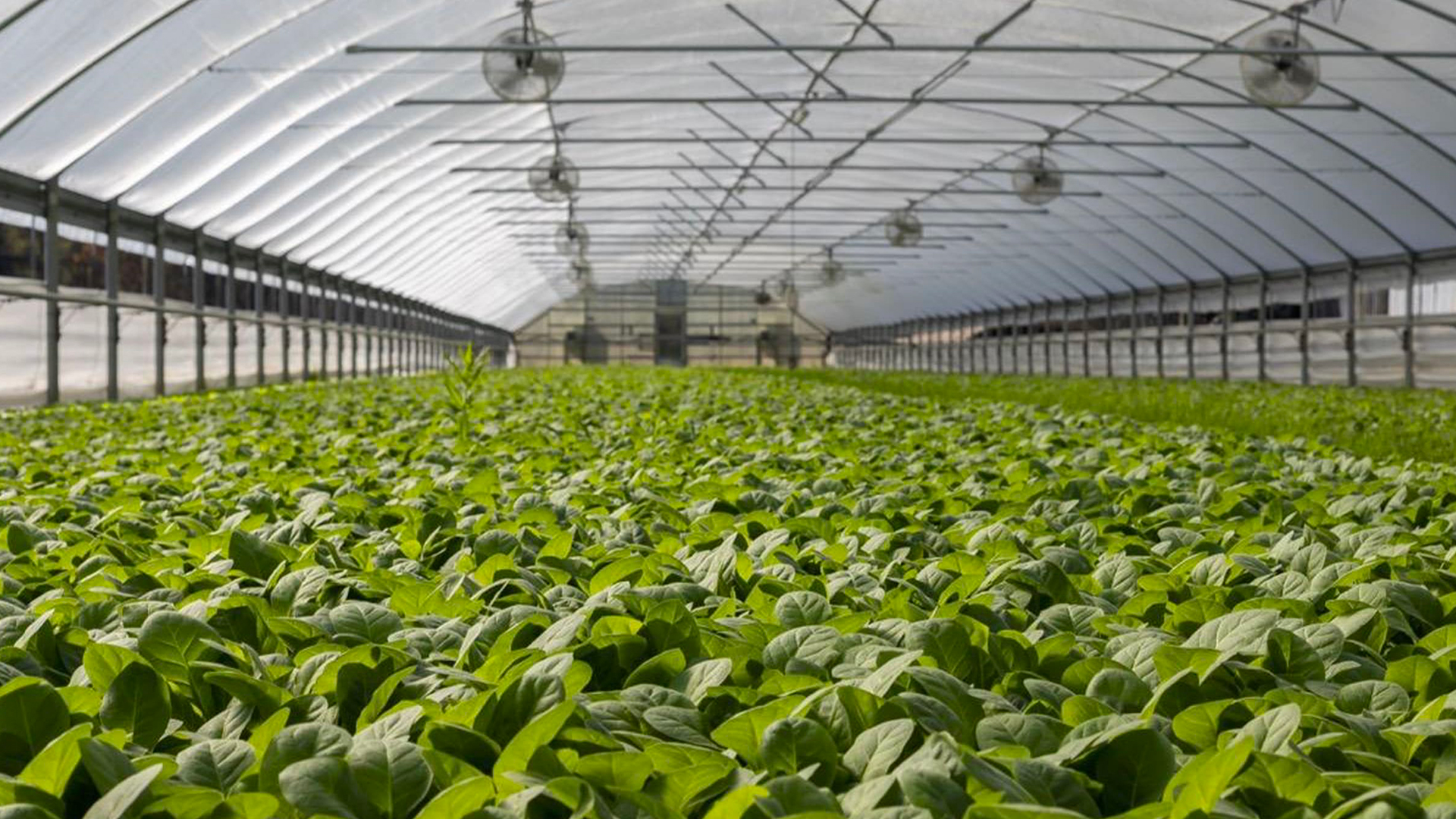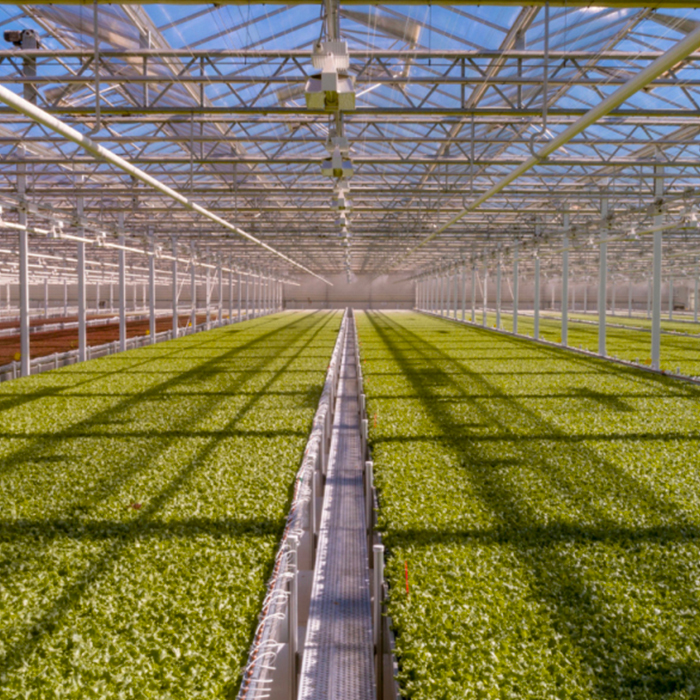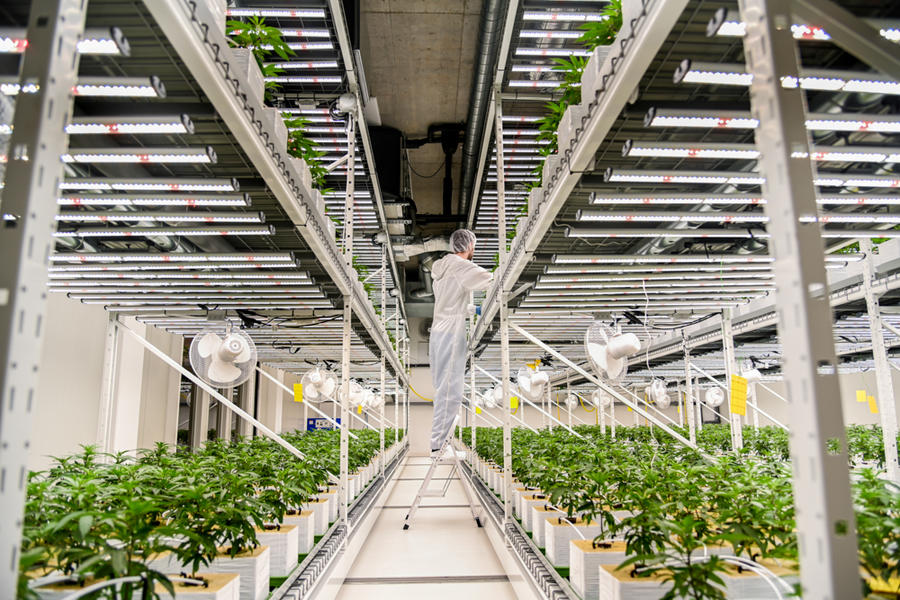Greenhouses: Harmonizing Tradition + Innovation
Insights on vertical farming

Little Leaf Farms: Greenhouses Done Right
-
Little Leaf Farms in Devens, Massachusetts, is a perfect example of how a greenhouse can strike a balance between sustainability and the demands of a 21st-century commercial farm.
-
Co-founders Paul Sellew and Tim Cunniff, as well as Head Grower Pieter Slaman, have engineered a conveyor-driven closed hydroponic greenhouse model that delivers on the promise of sustainable farming. How? By maintaining a low carbon footprint and implementing ecological plant and pest management strategies at scale:
-
- More water conservation: Little Leaf recycles rainwater and sanitizes it with UV light. The entire process is so efficient that the whole farm uses only 27 inches of rainwater annually.
- No pesticides or chemicals: Plants in the greenhouse are defended by harmless predatory insects like ladybugs instead of harmful chemicals. Automated gutters and conveyor belts do much of the work without human intervention, a risk vector for contamination even in the most sanitized facilities.
- Fewer food miles: Traditionally, lettuce and other leafy greens are shipped across the US from the West Coast, but thanks to Little Leaf’s location in the Northeast, New Englanders and people living in the Mid-Atlantic can purchase local greens, which cuts down greatly on national transportation emissions.
-
“We know this is the right model to enable us to bring our leafy greens to markets all over the country,” said Sellew, in a Q&A with Indoor Ag-Con, “and are confident that once consumers in those new markets try our lettuce, they’ll never go back.”

GREENRAK® 2.0 MOBILE BENCH FOR GREENHOUSES
Montel’s GREENRAK 2.0 MOBILE BENCH, allows growers to optimize the vertical space in their greenhouses while still benefiting from natural light. Utilize natural light on the upper levels, and LEDs for levels below. With this setup, you can seamlessly switch between natural and artificial lighting for your crops, whether it's food or cannabis, depending on the weather conditions.
If you’re thinking about making the switch from standard indoor farming to a hybrid greenhouse model, visit your local Authorized Montel Distributor and ask about our free, no-obligation consultation.





